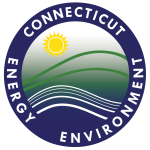Integrated Pest Management (IPM)
A Common Sense Approach to
Interior and Landscape Pest Management
Integrated pest management (IPM) is a term used to describe a systematic method of managing pests using non-chemical pest management methods and the judicious use of pesticides when pest populations exceed acceptable levels. When pesticide applications are necessary, priority is given to using the least toxic pesticide as first choice. The implementation of integrated pest management is recommended as a common sense approach to pest control in all environments from residential to municipal, commercial and campus settings for both interior and exterior applications.
Significant reductions in the volumes and toxicity of pesticides applied can be achieved when an IPM program has been implemented properly. The reductions result from the elimination of scheduled pesticide applications that are often made as preventive treatments. Precision applications of low toxicity pesticides rather than typical baseboard applications or treatment of an entire property also have proven to greatly reduce the total volumes of pesticides applied.
IPM for Homeowners
Homeowners can implement their own IPM programs or request that their service providers use IPM when performing pest management within their home or landscape. The key to successful pest management for homeowners is good communication and a commitment to change conditions that make it easier for pests to flourish. Generally, it is not necessary for a home IPM program to be complex in order to be successful.
- Integrated Pest Management for the Home
- Homeowner IPM Structural Checklist
- Ant Management
- Rodent Management
- Cockroach Management
IPM for Municipalities, Commercial Establishments and Schools
In municipal, commercial and campus settings, development of a written IPM plan to establish individual responsibilities, pest action thresholds, a system of communication and pesticide hierarchy is recommended and, in some cases, required by law. Presently, Boards of Education are required to develop written IPM plans for landscape applications at schools with grades K – 8.
The following guidance is available for use in developing and/or implementing a successful Integrated Pest Management program.
-
Sample IPM Plans - for the most common categories of commercial pest management including general pest, rodent, ornamental & turf and arborist
Assistance
Staff of the Pesticide Management Program is available to provide technical assistance or to evaluate an existing IPM program.
Contact Information:
Department of Energy and Environmental Protection
Bureau of Materials Management & Compliance Assurance
Pesticide Management Program
79 Elm Street
Hartford, CT 06106
Telephone: 860-424-3369
e-mail: Diane.Jorsey@ct.gov
Content Last Updated: November 2016

